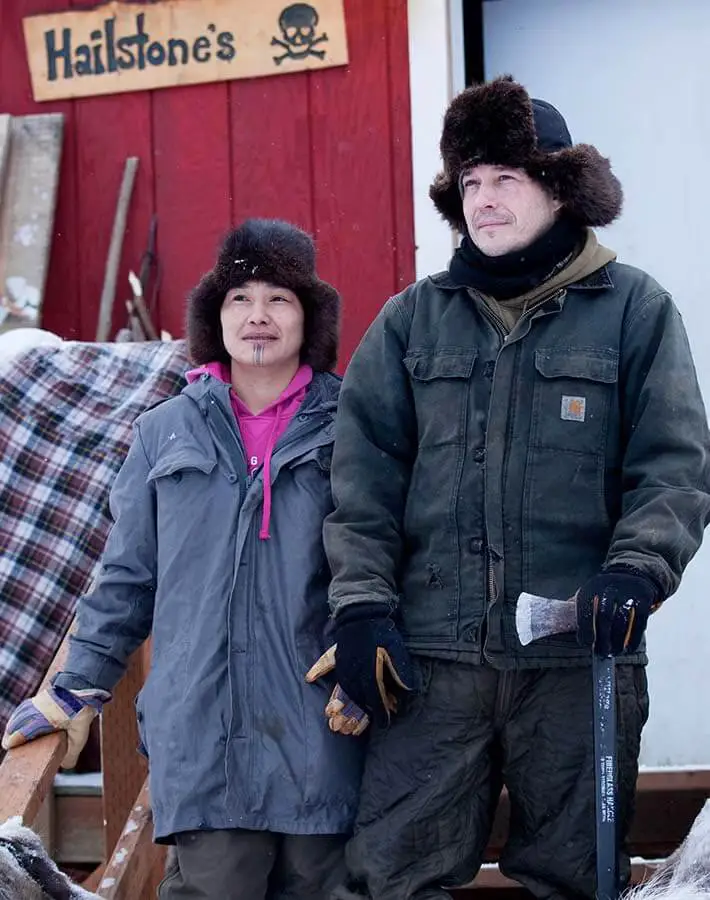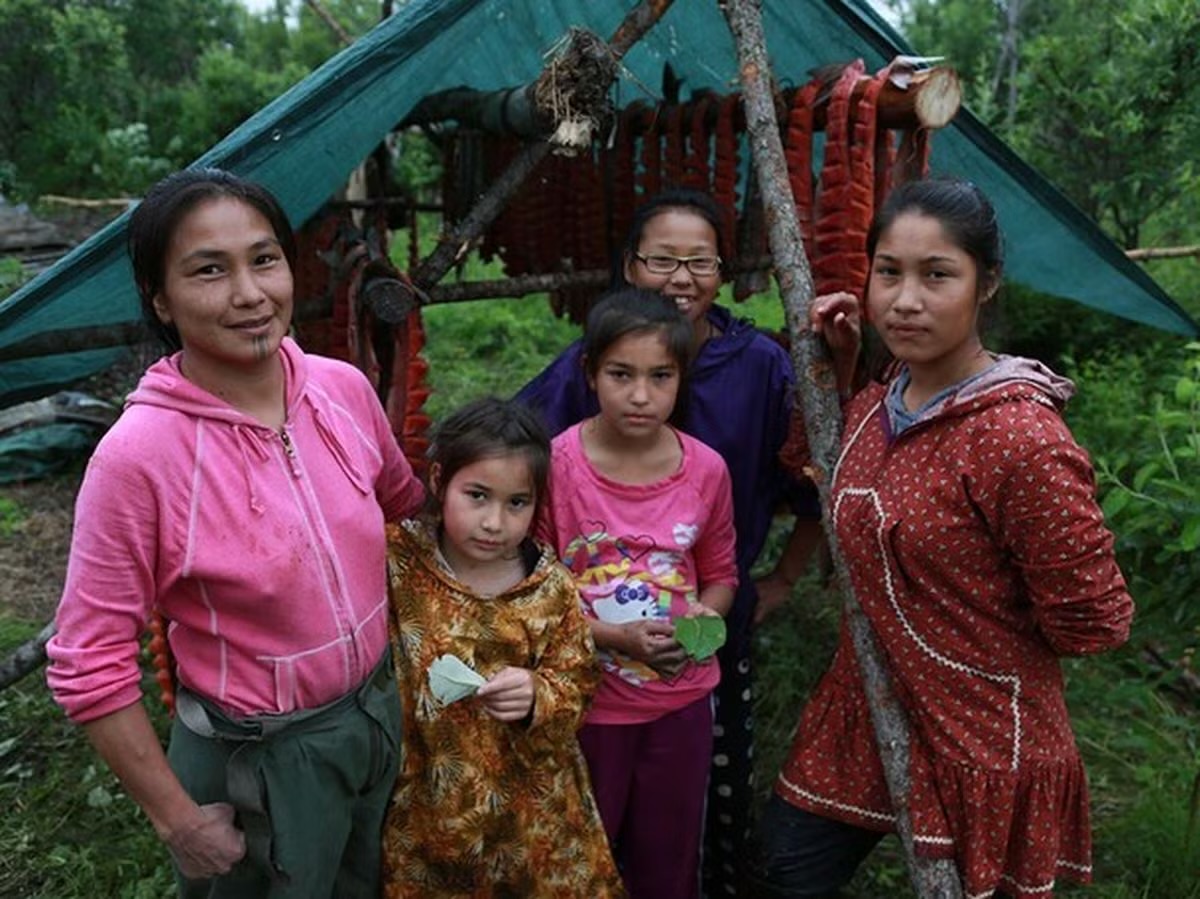Edward “Chip” Hailstone, a key figure in National Geographic’s Life Below Zero, has always been open about his unique lifestyle and the challenges of surviving in the harsh Alaskan wilderness. While the show has brought viewers an authentic look at his way of life, Chip has spoken candidly about the difficulties of filming a reality series while trying to maintain his family’s survival.
During a Q&A session, he detailed what he didn’t like about the show, revealing the complications, frustrations, and compromises that came with being on camera.
Filming Slows Everything Down
For someone living off the land, efficiency and timing are critical. However, filming often disrupted the natural flow of daily activities.
Chip described the process as “The wait”, explaining that while he is patient, he prefers to “Get things done” without unnecessary delays. The presence of a film crew meant tasks that would typically take minutes could take hours, making survival and efficiency a constant struggle.
“Filming slows things down. ‘The wait’ was what we called it, and though I’m fairly patient, I really do like to ‘Get things done.'”

While being filmed was generally manageable, the real challenges arose when dealing with new crew members, unpredictable weather, and the need to keep his children focused while working in dangerous conditions. The crew’s lack of familiarity with Alaskan survival also posed an issue, as Chip often had to train new members on how to safely navigate their environment.
“The hard part was training new crew, keeping the kids in line, and getting some proper hunting done with a couple extra snowmachines or an extra boat along. Bad weather, thin ice, and sometimes crew personalities or insistence would make it all ‘work,’ and the times when just staying alive becomes a question with some situations… and they want to film such…LOL!!!”
Challenges with Crew and Production Decisions
Chip further elaborated that while his family was given some freedom in shaping the filming process, they still had to contend with remote decision-making from producers who were not on-site.
“All in all, it mostly didn’t matter enough to stop the filming, but sometimes it did, and dealing with personality or people on the phone, over the hill and far away making decisions was very difficult.”
Despite these struggles, Chip acknowledged that the ability to train the crew and problem-solve on the spot helped make the process bearable.
“The joy in it all was that we could work out the problems, train the crew if they needed it, get things done, and get it on film. That was all in our own words at our own direct.”
However, despite their efforts to make filming as authentic as possible, the final edit often altered their reality:
“The freedom we were given to shape and lead the filming so we could present a great story that was true and real was a major help in stress reduction and satisfaction with the end product… and then they edit’d the hell outta it…LOL!!”
The Crew’s Learning Curve and the Reality of Hunting Disruptions
Chip made it clear that while the crew never directly contributed to dangerous situations, their lack of experience meant they often didn’t understand what was happening until it was too late. This could result in hesitation, missed shots, or accidental interference with crucial survival tasks.
“The crew themselves never contributed to any bad or dangerous situations, but often they didn’t understand what we were up to until we did it. That would come out in being hesitant or not ready for a shot, but like pros, any second time around was smooth, like the things we do in season. Anyone who hung with us in summer and winter definitely did better the second year.”
Despite the challenges, Chip acknowledged the crew’s dedication and professionalism, noting that they even won several Emmy Awards for their work—though not, as he joked, for putting up with him and his family!
“The crew won several Emmy Awards, but none for putting up with us or us with them, LOL!!”

How Filming Ruined Hunting and Survival
One of the most significant issues Chip faced was how filming negatively impacted his family’s ability to hunt. Hunting is essential not just for survival but also for maintaining the social status of his family in their community. If filming interfered, it could result in a direct loss of food, materials, and reputation.
“Say we hypothetically go out for Fall Caribou—10-25 bulls—or go out for Spring Oogruk hunting, and the cameramen, despite strict instructions, decide to ruin the hunt ‘to get a better shot’ while filming and yet get nothing because they scare the animals by not listening or participating properly.”
The cost of such failures was staggering. Without a successful hunt, his family would need to replace the lost meat, oil, and skins—something that wasn’t cheap.
“So, 1,600 pounds of meat, oil, and skins have to be made up for to end up with a meal or something to put away. What’s beef going for? Say $10 a pound, so to make it up, we need to spend $16,000… see what I mean?”
A particularly devastating loss came when they missed a Fall Caribou hunt due to filming disruptions. Not only did they lose out on food, but their status as skilled hunters was also affected in their community.
“The biggest screw was not doing a Fall Caribou hunt, where we ‘made meat’ in a perfect way—brain shot and cleaned the animals right there beside the river’s edge. Besides not getting the meat, the social status of our family as hunters was diminished.”
The best compromise, in the end, was to ignore the cameras and hunt anyway. As a result, the film crew eventually stopped showing up during the Fall.
“That’s why we ignored them often and hunted anyway, so they stopped coming around in Fall. It was the best compromise.”
Conclusion: A Love-Hate Relationship with Filming
Despite the hardships, Chip admitted that filming Life Below Zero was an exciting and rewarding experience. While life was undoubtedly easier without cameras, there were still moments of joy and adventure.
“I’m very glad everyone liked the series. Though life is easier without the cameras, it was fun as could be… and adventure calls as Muskox season is almost over, and my ride is fine, and my rifle is in tune. Maybe take a few pictures and get back here with some.”
Chip’s honest and unfiltered account reveals the hidden challenges of reality TV—from the frustrations of waiting on cameras to the financial and social losses caused by filming disruptions. While Life Below Zero gave audiences a raw look into the lives of subsistence hunters, Chip’s experience proves that reality TV, no matter how authentic, always comes with compromises.



0 Comments